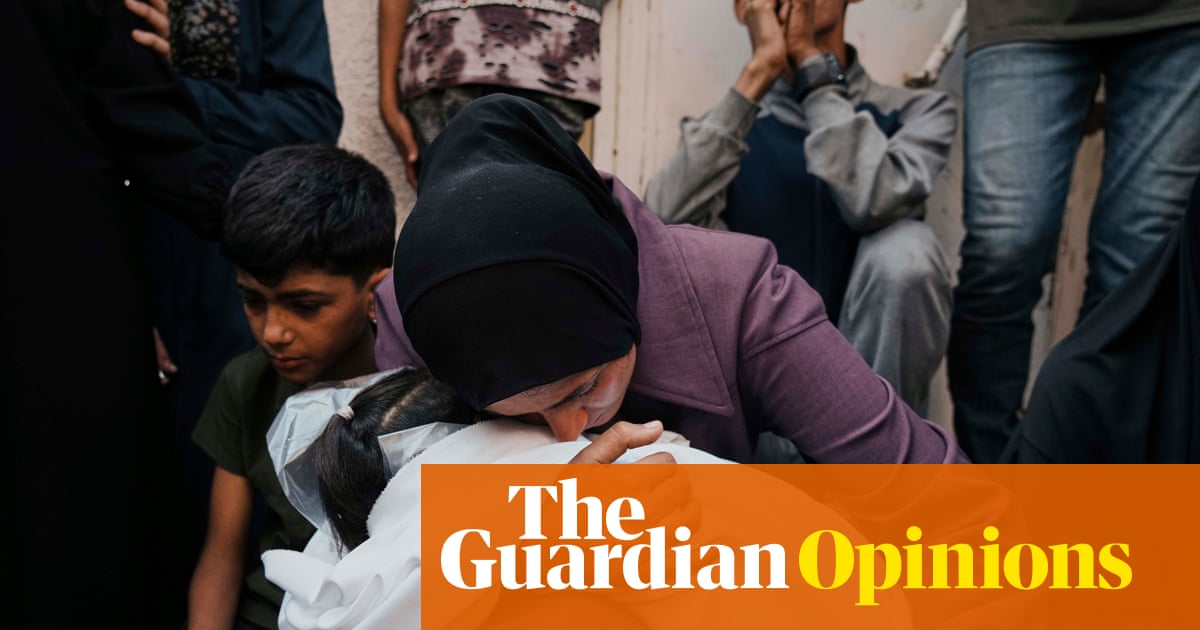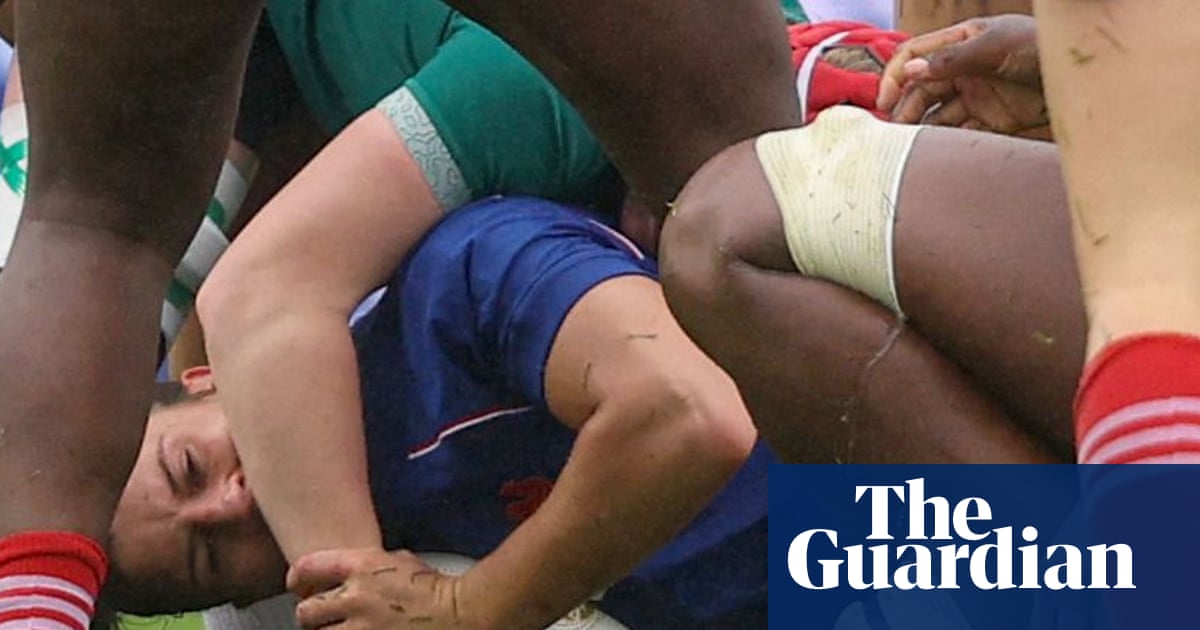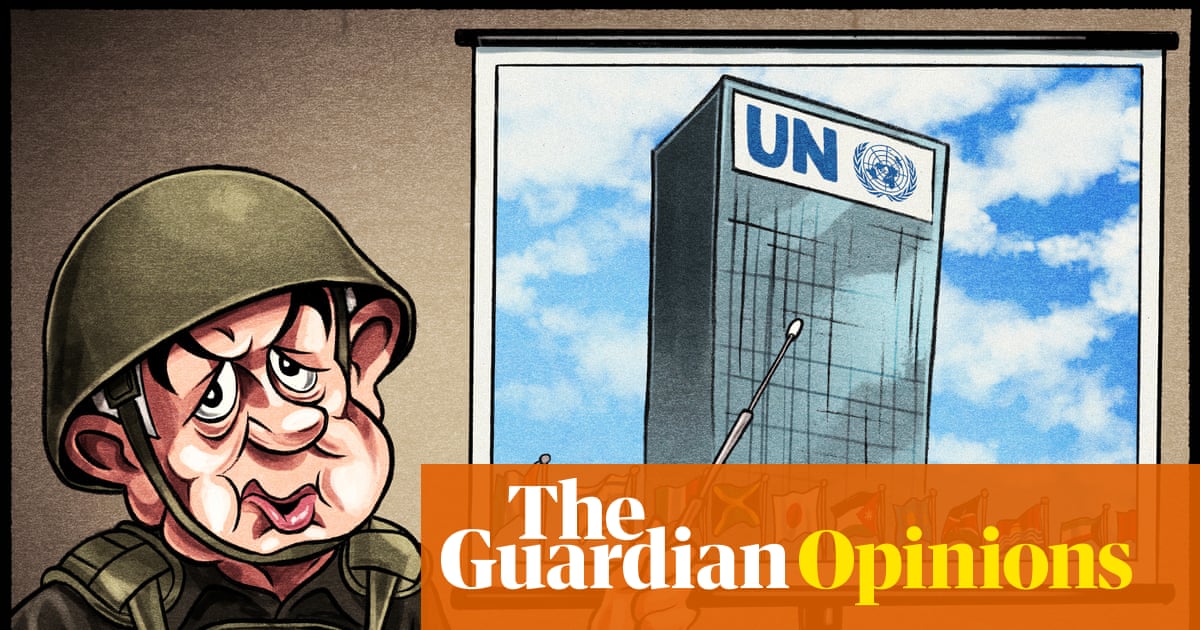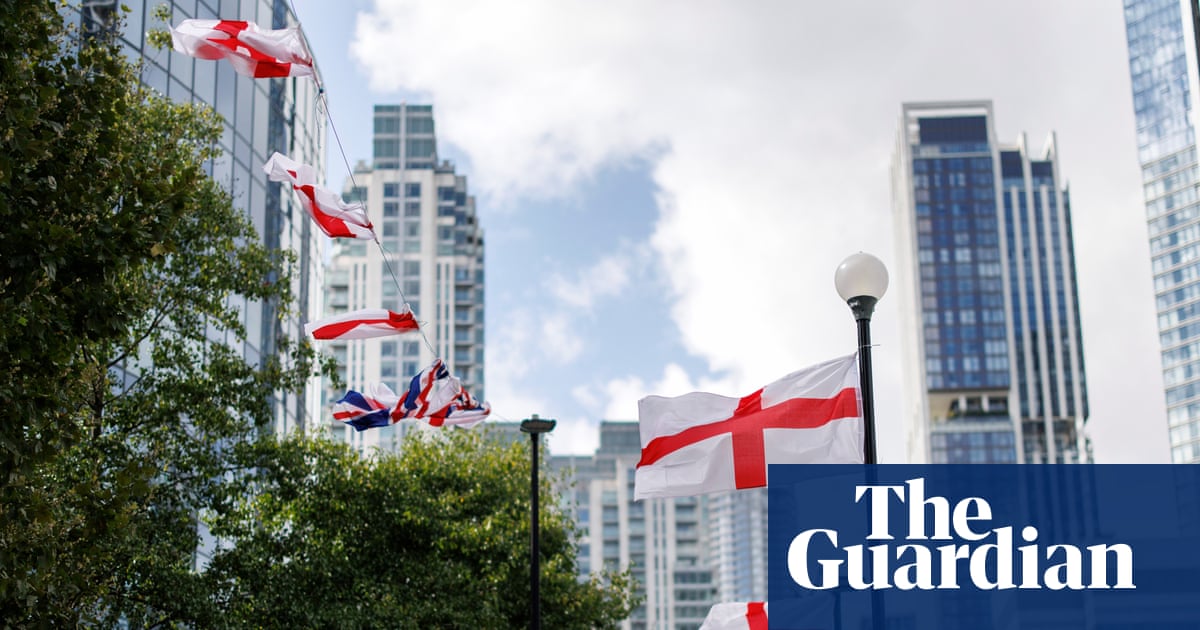When the mob comes hunting down Clonavon Road, the foreigners who remain entrust their fate to stickers on front doors and flags on windows that signal they are the good foreigners, the foreigners who cause no trouble, and deserve to be spared.
“Filipino lives here,” declare posters with the Filipino flag, pasted as talismans against destruction. Other families have erected union jacks and loyalist bunting in hope of deflecting the crowd’s wrath and avoiding selection.
“We put it up yesterday,” said Blanka Harnagea, 38, an immigrant from the Czech Republic, indicating the British flag on her living room window. Was it working? A wry smile. “We’re still here.”
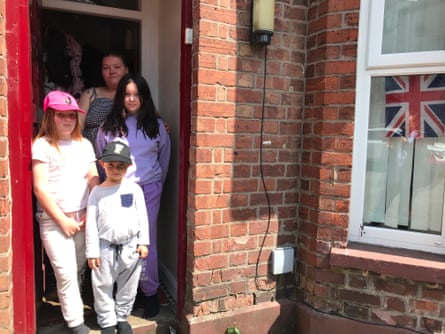
On a street of scorched, abandoned homes it was a fragile victory because no one knows if the rioting that has scarred the Antrim town of Ballymena this week will abate or continue and spread to other towns in Northern Ireland.
Hundreds of people, many masked and hooded, targeted foreign-owned homes and businesses on Monday and Tuesday in a spree of smashing, burning and missile-throwing that turned into assaults on police that left 32 officers injured and several properties and vehicles torched.
In the House of Commons, Keir Starmer joined Northern Ireland politicians in condemning the violence and pleading for calm. But foreign residents in Ballymena still grappled with the decision: flee, or hunker down and hope for the best?
“The crowd was banging on the door and we were all upstairs,” said David, a 28-year-old Polish man who withheld his surname. Two Polish and Bulgarian families – about 12 people in all – had clustered together for safety and wedged a sofa against the front door when the mob smashed windows and set fire to the living room, he said. “I smelled the smoke. We came down and ran out the back door to the police station.”
On Wednesday afternoon the sun shone and debris from the night’s mayhem had been cleared away, but the food processing plant worker and his pregnant girlfriend were packing and preparing to relocate – just for a few days, they hope, but some members of her family wish to return to Bulgaria. “I’m here 14 years, never anything like this,” said David. His voice shook.
The violence erupted on Monday after a vigil for a teenage girl who was allegedly sexually assaulted by two 14-year-old boys. When they appeared in court a Romanian interpreter read them the charge of attempted rape.
The vigil was peaceful but when a crowd broke away and started attacking homes occupied by foreigners on Clonavon Road and nearby streets a full-scale riot erupted, drawing police who then bore the brunt of attacks. Liam Kelly, chair of the Police Federation for Northern Ireland, said his members had prevented a pogrom. “What we saw was totally mindless, unacceptable and feral.”
Some native residents of Ballymena, in contrast, believe it was necessary – an overdue reckoning. Authorities have turned the predominantly Protestant working-class town, 25 miles north-west of Belfast, into a “dumping ground” for immigrants and asylum seekers, they said.
“The riots have a valid point; we are being overpopulated,” said Danielle O’Neill, 32. “It sounds like I’m racist but I’m not. It’s like an invasion. I don’t feel safe walking the streets any more. Just yesterday one of them was following me and eyeing me up.”
O’Neill credited some arrivals with working hard and creating jobs, but she accused others of criminality – a bane that authorities ignored. “If they can terrorise our kids we can terrorise the town. It’s a way of getting our voices heard.” Her husband, Ryan O’Neill, 33, said residents had to take action against alleged criminals. “If the government won’t put them out, we’ll put them out.”
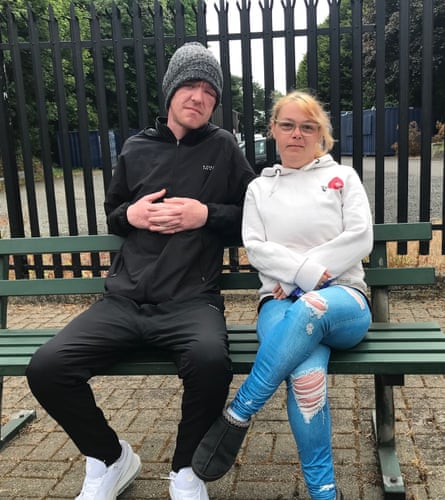
One resident said rioters – some with paramilitary connections – had ordered householders to deactivate door bell cameras and other devices that might identify those responsible for the mayhem. Proclaiming Filipino nationality has had limited value – at least one Filipino household was targeted and had its car torched.
Tyler Hoey, Ballymena’s deputy mayor and a Democratic Unionist party councillor, condemned the violence and said foreigners were welcome but accused the UK government of allowing “busloads” of unvetted people to settle in the town. “Unfettered immigration needs to be addressed.”
Dee, 53, a bottling plant worker, said the rioting reflected a belief that new arrivals received lavish state benefits and that police and politicians turned a blind eye to antisocial behaviour.
“I’m working my balls off and paying my taxes while they get put up in luxury hotels and the police let them do what they want. It’s a dumping ground. No one cares about us, we’re forgotten.”
Dee said he recognised – and welcomed – Catholics from other parts of Ballymena who joined the protests. “They wouldn’t normally be in a loyalist area like this but they came down. It’s a very good thing.”
Dee regretted that his immediate neighbours – a Slovak family – had their windows smashed. The previous occupants were “a nightmare” but the Slovaks were “brilliant” and should not have been targeted. “They got hit in the heat of the moment. It was a mistake.” Those responsible had apologised and told the family it could stay, said Dee.
On an adjoining street, Harnagea, the Czech mother of five, hoped her newly installed union jack would bolster the protective efforts of her neighbour, a local man. “He knows we’re good people, that we don’t do any harm,” she said. “I think he has explained that to the others.”
Even so, as a precaution she has moved documents and other belongings to another location. “I haven’t slept in three days. I don’t know if I’ll sleep tonight.”

.png) 3 months ago
58
3 months ago
58









